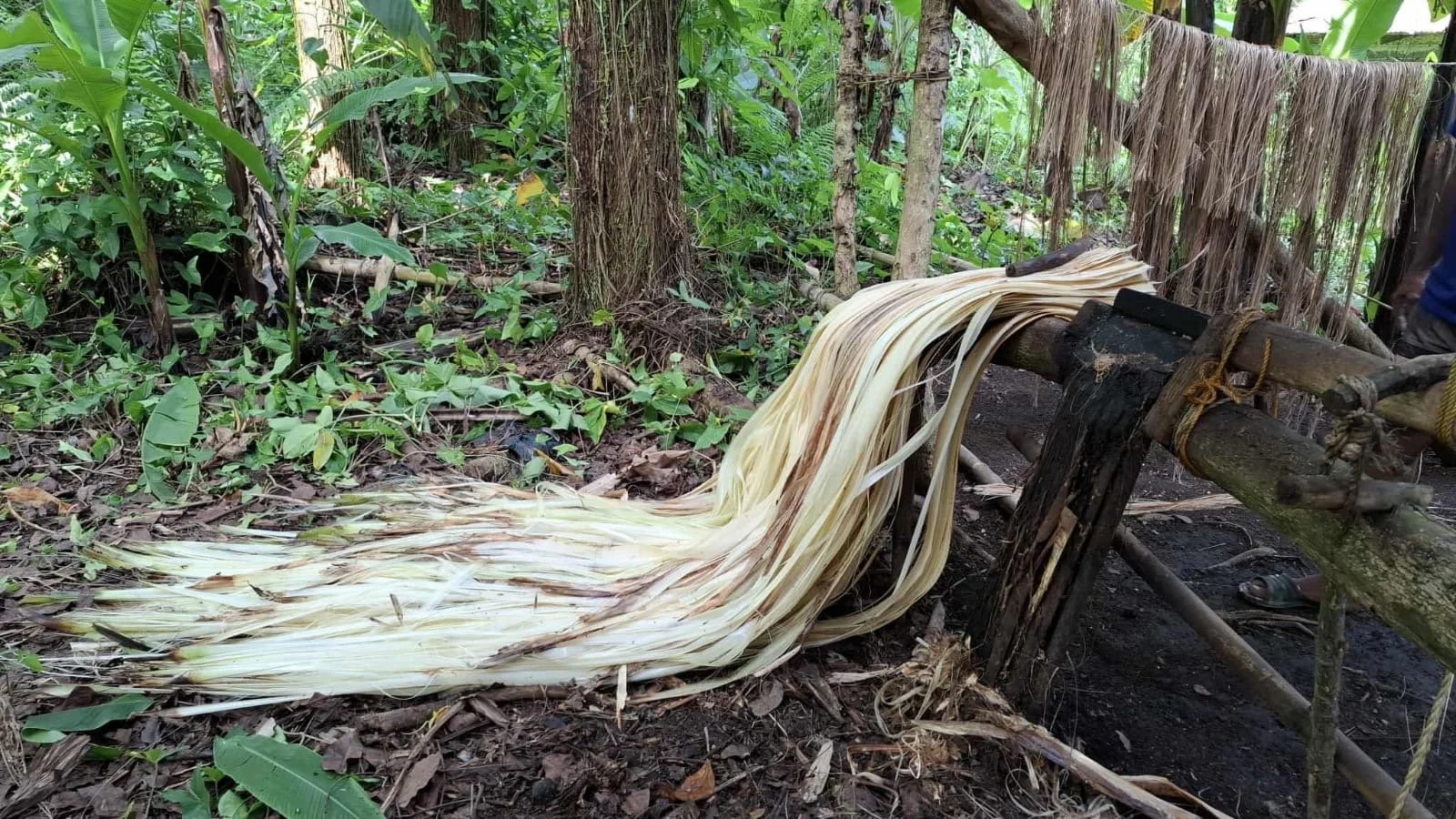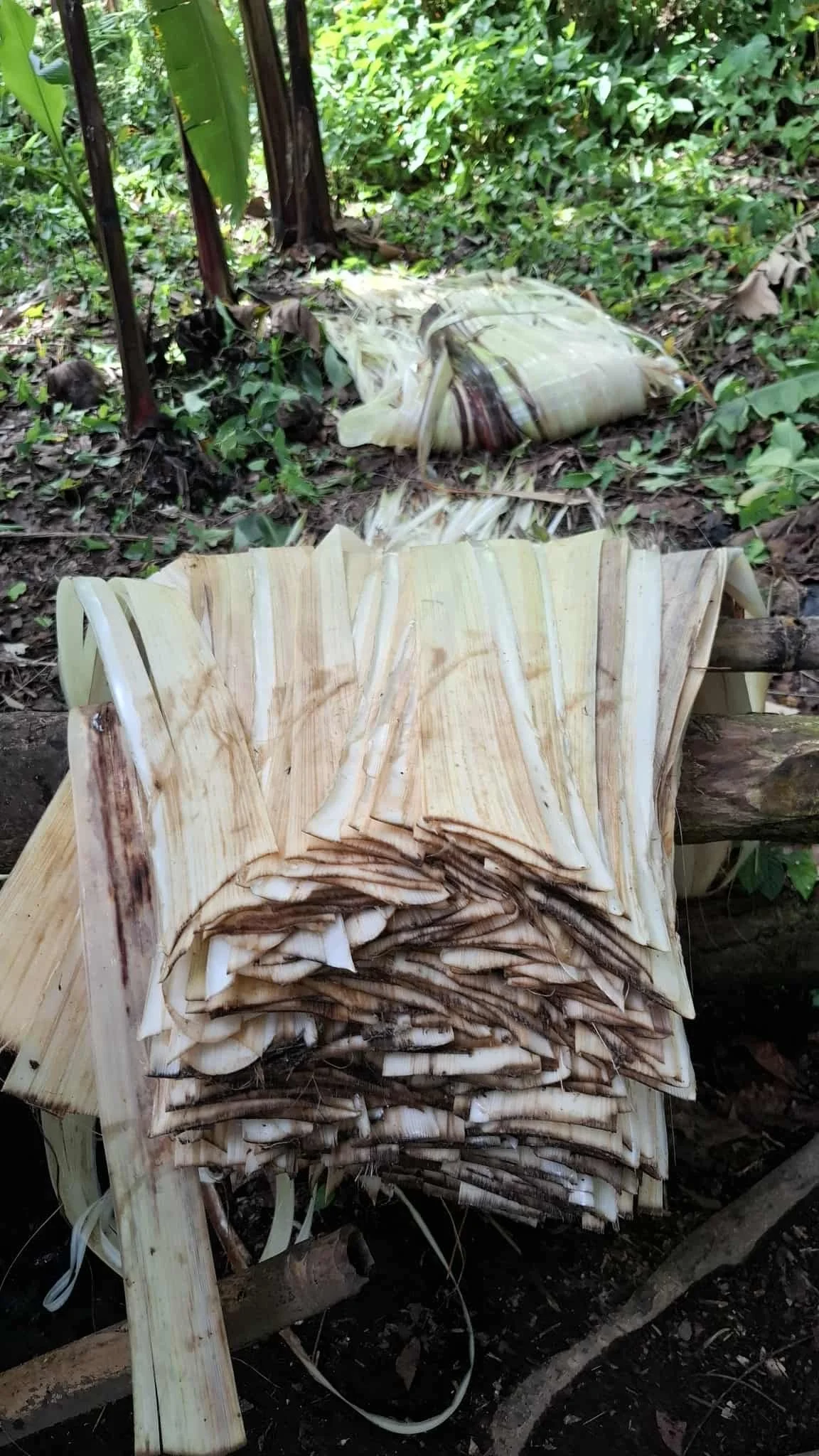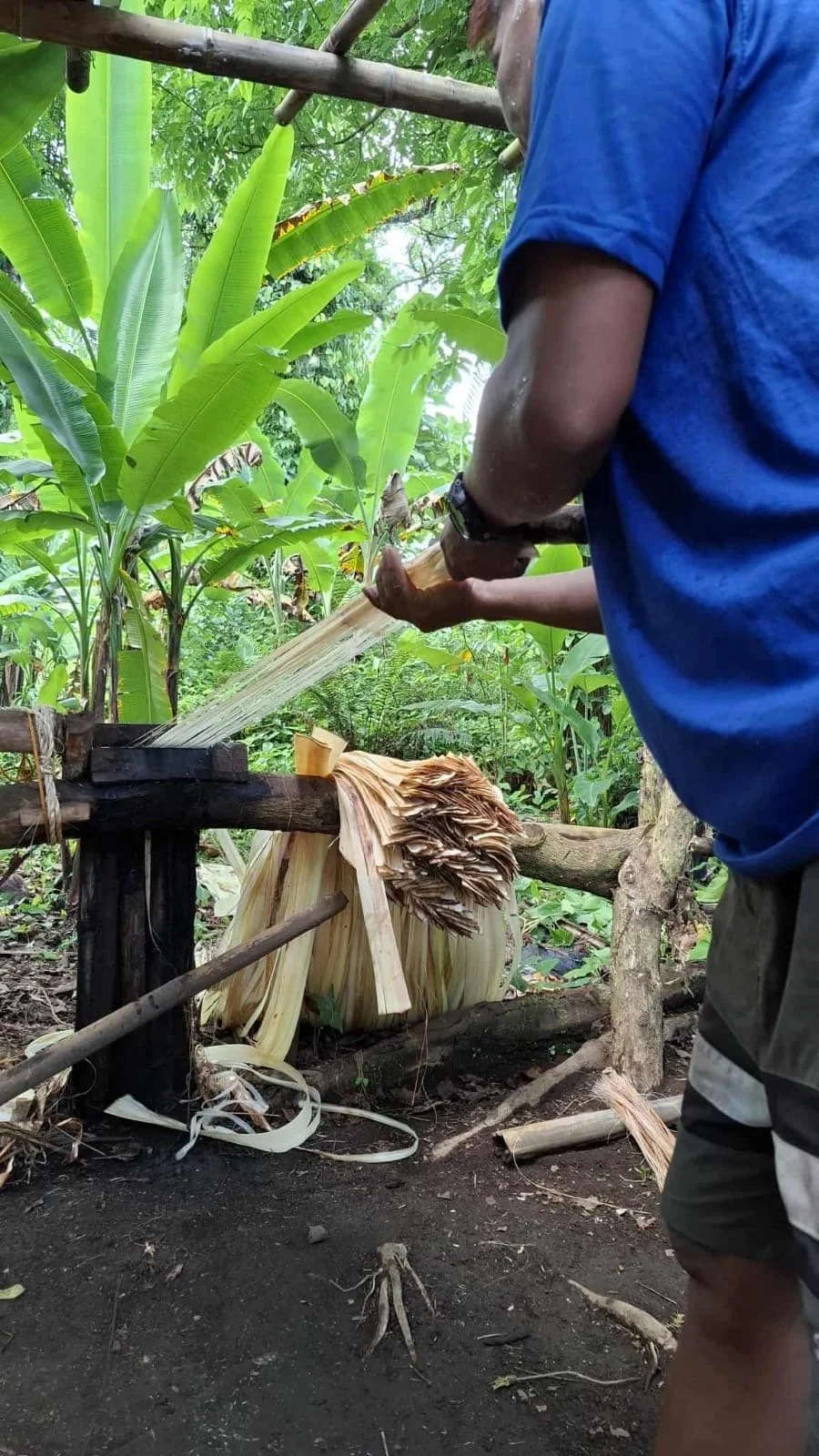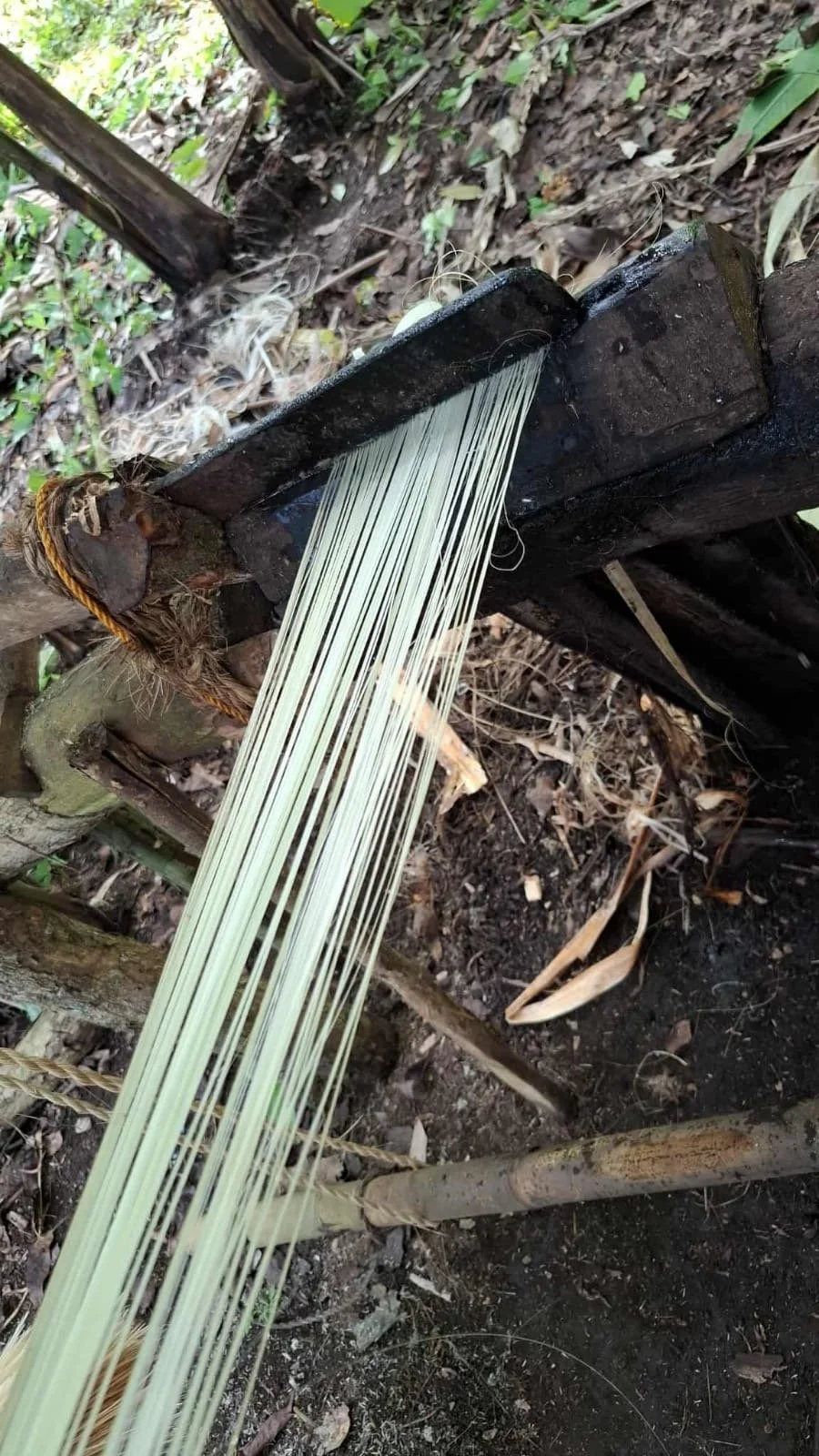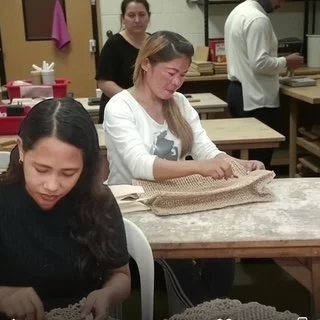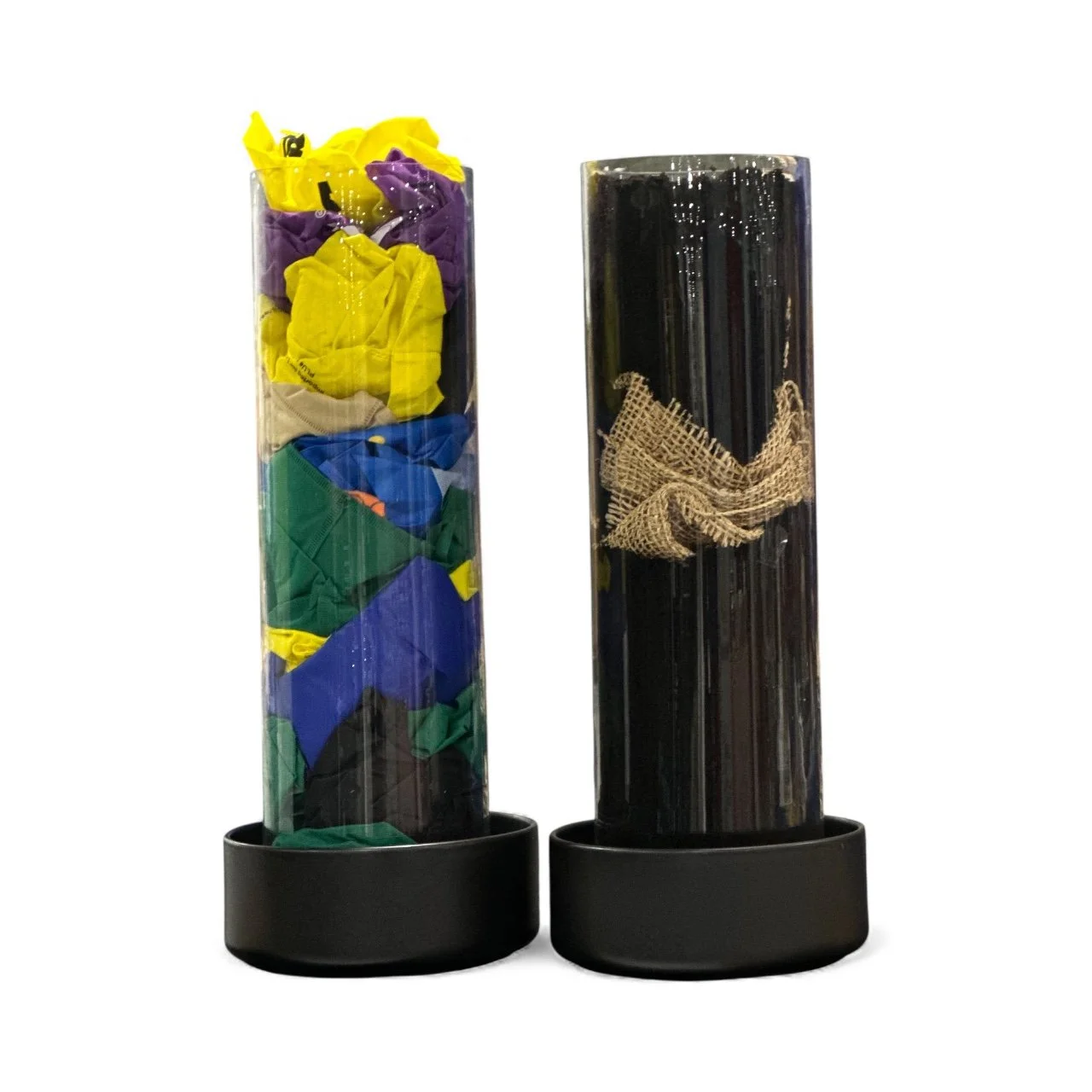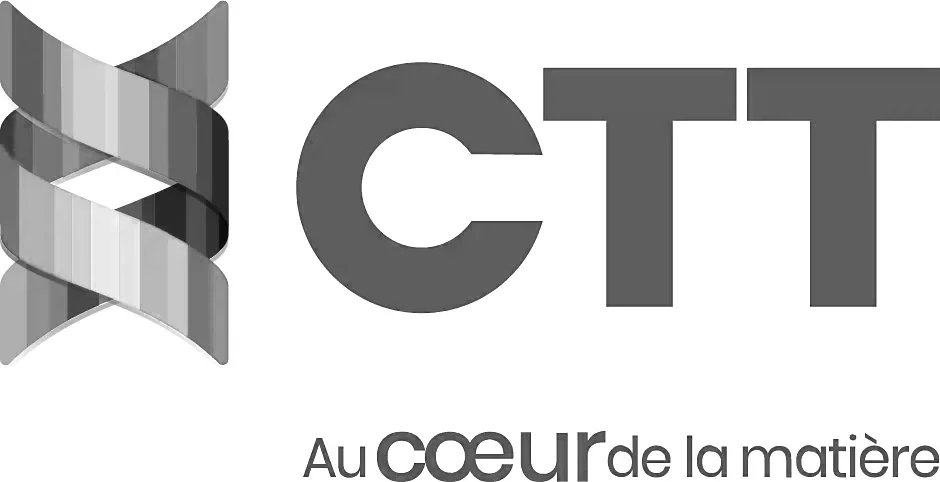Women + Forest + Climate
Turning Waste Into Worth
The outer layer of abaca sheaths is often discarded and left to decompose because it’s a rough, imperfect, and darker fibre, while the inner layer is exported for textiles, paper, and rope. However, when we examined them closely, we discovered an opportunity hidden within those imperfect layers.
By reclaiming the tough outer layers of the sheath, we’ve found a new purpose for materials that would otherwise be discarded on the ground. We have now turned the outer layer of abaca fibre into reusable and beautifully designed grocery produce bags, replacing thousands of single-use plastic produce bags in grocery stores. It can also be used as a strainer and storage for produce in the fridge.
Women Weavers
At Clean Market Bag, our mission is to protect the planet while empowering the people behind the products. Most of our weavers are women who support their families or send their children to school for a better education. Like abaca fibre, they are strong and resilient. We aim not only to create opportunities for them but also to provide a fair wage and steady jobs that support local economies and uplift human dignity.
Forest
We dedicate 1% of our revenue to planting trees in the same regions where our weavers live and work. Much of our abaca comes from the Bicol region of the Philippines, one of the most vulnerable areas of the country during typhoon season. Through partnerships with local environmental organizations, we can support tree planting initiatives to help protect the watershed, reduce soil erosion, and safeguard local livelihoods.
Climate Impact
At Clean Market Bag, we are always conscious of our processes to minimise our impact on the planet. By using abaca fibres, a natural, compostable material, and utilising discarded fibres that would otherwise be left on the ground, we significantly reduce our environmental footprint. Compared to conventional plastics and some natural fibres like cotton, our approach, from harvesting to weaving, uses an insignificant amount of water and does not require the use of chemicals. Our bags are hand-woven by Filipino artisans, and not manufactured in industrial factories.
Our bag is designed for years of daily use, drastically reducing its overall footprint compared to plastic bags made from chemicals, which contain microplastics that pollute our waterways and enter our food chain. On average, an abaca fibre bag has a carbon footprint of 0.17-0.83 CO2e, which is 55-86% lower than that of synthetic or cotton bags. After years of use, our bag can be disposed of in your garden or compost bin. Simply remove the cotton handles, and the entire body of the bag will disintegrate over time.
Plastic bag → single use, fossil-based
Clean Market Bag → reusable, compostable, plant-based You
Partnerships & Collaborators
